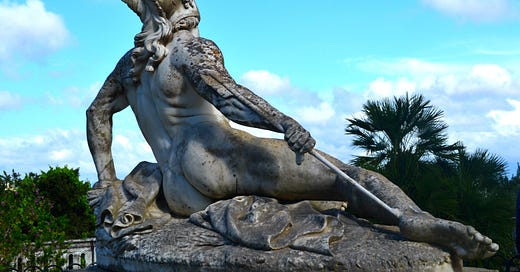2 Worship Leading Achille's Heels
The legend is told that when Achilles was an infant, his mother dipped him into the river Styx to make him immortal. But since she held him by one heel, that spot didn’t touch the water, so it remained mortal or vulnerable. An Achilles’ heel is now idiomatic for a point of weakness or deficiency in spite of an overall strength.
As worship leaders, we’re not immune from our own Achilles’ heels of arrogance and aloofness. If ignored, these two weaknesses could lead to ministry conflict or even failure. Relational instead of musical deficiencies seem to be at the root of these two vulnerable places. And yet, we often invest the majority of our time and attention trying to improve musically only.
Arrogance: The worship leader who leads from the impression that he/she alone has the ability and even right to be the sole proprietor of the worship service often cares more about elevating him/herself than helping the congregation participate in spirit and truth worship.
Instead of a desire to be exalted, maybe our worship leading prayer should be, “Lord, deliver us from the need to always have the last word.” Jorge Luis Borges wrote, “Arrogance is when the image of the Lord has been replaced by a mirror.”
If you alone are holding the worship process as a gatekeeper to receive all the credit when something works, just remember that you’ll also receive all the credit when something doesn’t work too.
Aloofness: Aloofness is the state of being distant, remote, withdrawn and even unapproachable. The word probably originated from the Dutch word loef, meaning “the weather side of a ship.” It was originally a nautical order to keep the ship’s head to the wind to stay clear of the shore or some other object. So, the word has evolved to identify an individual who is cool, uninvolved, disinterested, set-apart, or indifferent.
Worship leaders are sometimes aloof in order to minimize pre-service distractions. But that aloofness can convey that what I lead and how I lead it holds more value than whom I lead. Worship leading aloofness can mean we are more concerned with how we lead them on the platform than how we relate to them off the platform.
Taking time to invest in the lives of those we lead models a level of worship leadership that song selection and platform presence will never achieve.




